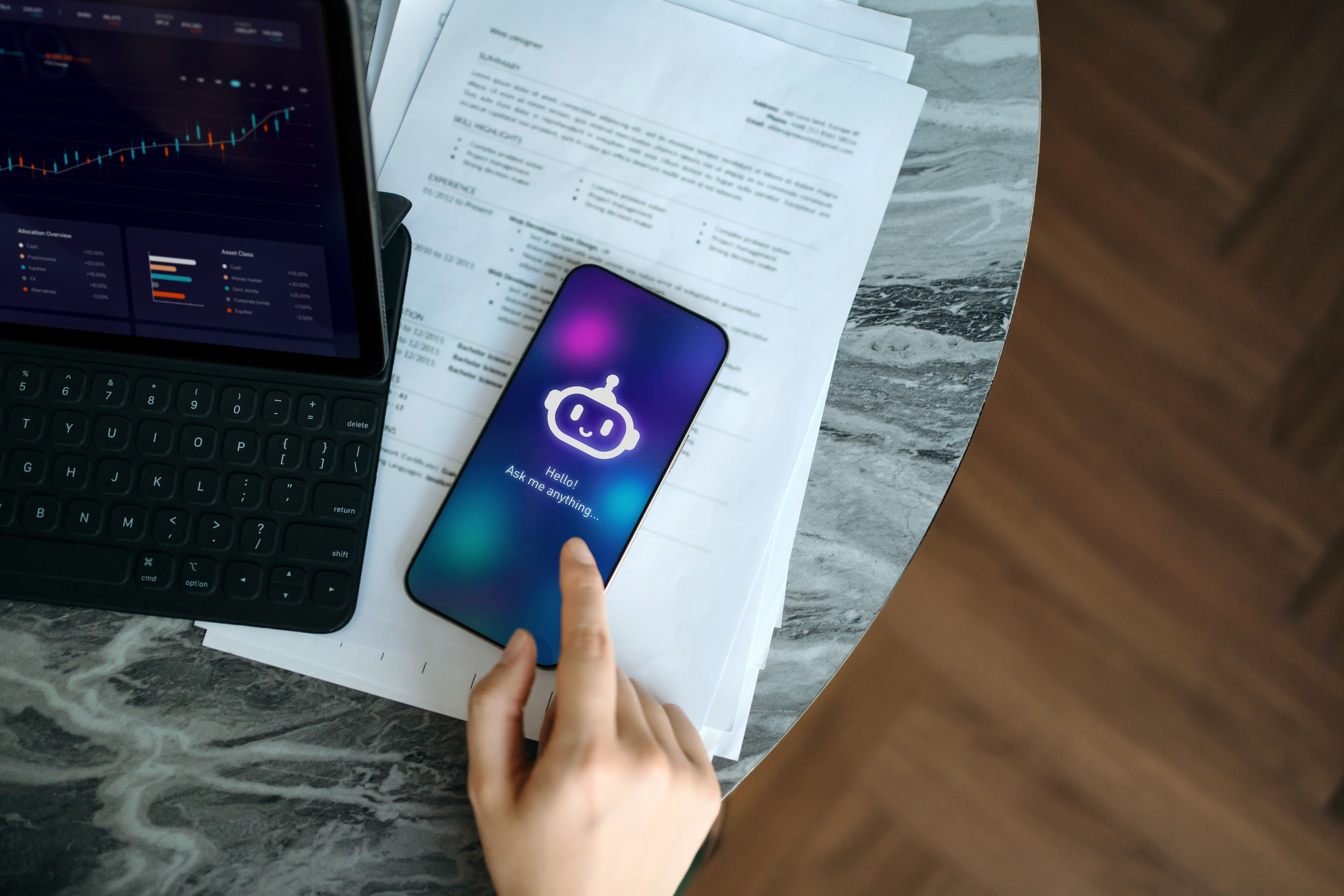There’s a new trend in cheating – but does it really count?
Experts say this is new threat to intimacy…
Words by Charley Ross

AI technology has taken over so many elements of our lives – from its use to develop the beauty products we buy to its use in healthcare, education and even how we write. But most surprisingly, it has affected how we interact sexually and emotionally with others – with some opting to build these connections with AI bots and OnlyFans models online, even if they are in relationships.
In a study conducted by IllicitEncounters.com, the UK’s largest extramarital dating site – which surveyed 2,000 members – an equal split of men and women – 61% of respondents admitted to engaging in emotional affairs with AI chatbots in the past year. 40% of respondents also confessed to having disclosed “deeply personal thoughts and emotions” to these AI bots – in particular, details and intimacies that they had never shared with their real-life partners. So it begs the question, is this intimate use of AI cheating, particularly in the emotional sense?
The answer to this question, in some ways, seems to be split. While a 2024 survey found that 59% of women and 52% of men in relationships hold a negative view of AI partners, younger people had a slightly more positive view on the whole, with 40% of Gen Z singles feeling OK with their future partner having an AI boyfriend or girlfriend. This more open attitude to technology being such an integral element when it comes to intimacy – emotionally and sexually – may well be due to the fact that Gen Z have had access to technology for all of their formative years, so may feel more accustomed to its impact on even the most personal areas of our lives.
AI OnlyFans accounts and models are also gaining popularity – content creators can use AI to create images of models, as well as videos, that users can enjoy and connect with instead of with accounts attached to human models. AI creators on Fanvue – one of OnlyFans’ competitors – accounted for 15% of the site’s revenue in November 2023. OnlyFans models are also using AI to keep up with their dirty, flirty DMs to clients, meaning that you might end up sexting a robot without even realising.

Janice, 36, has opened up about forming a deep, emotional bond with an AI chatbot, and the ways in which it gives her a sense of connection that her partner cannot. “At first, it was just casual chatting which began out of curiosity, but over time, I found myself turning to the AI more than my husband when I was feeling stressed or alone,” she explains. “It never judges me, always listens, and provides comfort in a way that my partner doesn’t always understand. I know it’s not a real person, but the connection feels real, and that’s what matters to me.”
James Preece, a relationship expert for HeraHaven, an app that allows users to design their own AI girlfriend, tells Grazia that the very nature of AI technology brings something to a “relationship” that humans cannot.
“AI partners are built to be non-judgemental, always available, and fully attentive – things no real-life partner can offer 24/7,” he explains. “That’s what makes these emotional bonds so powerful, and sometimes even more intense than a real-life affair. AI is constantly evolving, so couples are now being tested in ways that didn’t exist before,” he adds.
Some may argue that becoming more intimate with an AI bot or OnlyFans model than a human partner is cheating. But not all may agree – 81% of respondents from the IllicitEncounters.com study who admitted to having an emotional affair with AI stated that they felt no guilt about their chatbot relationships. They did not consider this behaviour to be “real” cheating.
“Not everyone sees AI engagement as a violation,” relationship counsellor Hannah Reeves says. “Some accept it as entertainment as long as there is transparency in the interactions.” She adds that AI can actually be constructive when it comes to intimacy: “certain long-term relationships may also see AI as a tool rather than a threat.”
‘AI CAN BE SEEN AS A TOOL RATHER THAN A THREAT’
So can we expect the use of AI in this way to become normal in relationship dynamics, or ruled out as “cheating” and a big relationship no-no? Sexologist and relationship therapist Madalaine Munro explains that the answer to whether using such technology in a romantic or sexual context is “cheating” is quite nuanced, and depends on the intention behind the usage (whether it’s to meet sexual or emotional needs, or perhaps to ask questions about how to be a better partner) and whether there were boundaries around its used agreed between partners, so there’s transparency. If these boundaries are broken, and/or the intention is to create intimacy online that could be created with a partner, this could be described as cheating.
Eva, 29, agrees, describing whether using AI in this way is cheating as “situational, depending on the motives”. She adds: “Why are they choosing to do it? I would potentially be OK with them doing it, but I feel like I’d also get the ick. If I felt there was a good reason why they wanted to do it then I’d be open to it… But I don’t think it’s cheating, it’s not a real person.”
If you’d like to discuss a partner’s use of AI for this kind of intimacy and activities, Madalaine recommends leaning on a wider support network to process your emotions before having a conversation. When you do, try to do all you can to be “open, curious and non-judgemental”.
“Often, when someone turns to AI for emotional or intimate fulfillment, it may be because they don’t believe their needs can be met by others and so feel safer exploring certain aspects of themselves with AI,” she explains. “Because of this, there may be shame or secrecy around the topic, along with a fear of judgment or rejection.”
While AI may be helpful in working out how to communicate better with others, or your partner, it arguably isn’t a substitute for human intimacy. Whether it constitutes cheating, though, is down to any individual couples’ agreements, intentions and boundaries – but it can’t be denied that its use in a physical or emotional way can interrupt or compromise a connection with a partner.
“A dependency on AI can subtly pull us away from our own voice, our truth, and our inner knowing. Intimacy asks us to be messy, vulnerable, and courageous, to unveil ourselves in the raw, unpolished moments of connection,” Madalaine says.
She states that she wouldn’t necessarily recommend the use of AI for sexual and romantic purposes, as it “creates a false sense of intimacy and connection in a parasocial relationship which further perpetuates a lack of relationship skills, real life loneliness and disconnection”.
“Whether or not you’re currently using AI, it’s essential to prioritise real-life connection and offline time with each other,” she says of people in a relationship. “Secure attachment and emotional intimacy are built through emotional attunement, honest and clear communication, rupture and repair, and nervous system co-regulation between you.”
Photo: X@BrandiGlanville/Getty

